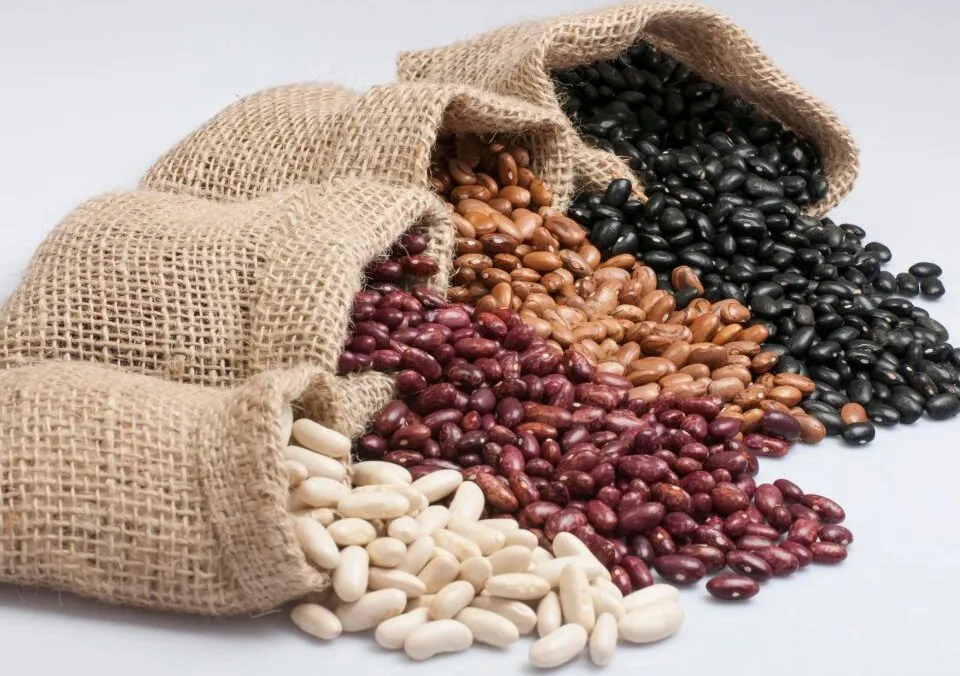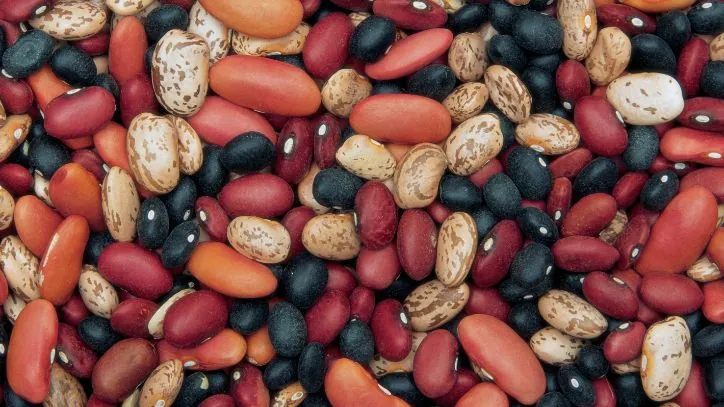Blog
Beans, Beans, the Magical Fruit…

“Beans, beans, the magical fruit. The more you eat the more you…” Yeah, you know the rest! When it comes to staple ingredients in Mexican cuisine, beans certainly have a special place at the table. They’re not only delicious and versatile, but they also pack a serious nutritional punch. From hearty chili recipes to classic refried beans, they enrich our foods and our health. Let’s explore the myriad benefits of beans, delve into their nutritional profiles, and learn how they incorporate beautifully into our diets, especially those of us residing in Arizona, where many beans are grown locally.
The Nutritional Powerhouse of Beans
According to registered dietitian Danielle Crumble Smith, beans are a “nutrition powerhouse.” Each variety of bean comes with its unique nutrition profile, but they share common characteristics: abundant fiber, resistant starch, protein, iron, and polyphenols. These attributes make beans an excellent choice for various dietary preferences and restrictions, contributing to their acclaim as a superfood.
1. Fiber
One of the key benefits of beans is their high fiber content. Fiber plays a vital role in maintaining digestive health, regulating blood sugar levels, and contributing to a feeling of fullness, which can assist in weight management. A serving of beans can provide a significant portion of your daily fiber needs. For instance, just one cup of cooked black beans contains about 15 grams of fiber, or roughly 60% of the recommended daily intake for adults.
2. Resistant Starch
Beans also contain resistant starch, a type of fiber that resists digestion in the small intestine and ferments in the large intestine. This characteristic can aid in improving gut health, promoting the growth of good bacteria in the gut, and enhancing overall digestive function.
3. Protein
For those seeking plant-based protein options, beans are a fantastic choice. They are not only high in protein but also low in fat. Different types of beans vary in their protein content: soybeans, for example, are often hailed for being a complete protein, providing all nine essential amino acids that our bodies cannot produce on their own. This makes beans a vital food source for vegetarians and vegans.
4. Essential Vitamins and Minerals
Beans supply a range of essential vitamins and minerals including iron and folate. Iron is crucial for transporting oxygen in the blood, and folate is especially important for pregnant women, as it helps to prevent neural tube defects in developing fetuses. Pinto beans, in particular, stand out due to their impressive folate content, supplying 74% of the recommended daily intake per cup.

Specific Types of Beans and Their Health Benefits
While all beans offer numerous health benefits, certain varieties excel in specific nutrients and health advantages. Let’s take a closer look at some popular types of beans and their unique contributions.
Navy Beans
Navy beans are small, oval-shaped beans that are particularly high in manganese, a trace mineral important for bone health, metabolism, and anti-inflammatory responses. The significant fiber content in navy beans aids in digestion and heart health. Incorporating navy beans into soups and stews can enhance both flavor and nutritional value.
Adzuki Beans
Adzuki beans, often found in Asian cuisine, have been shown to have positive effects on several diseases. They are high in polyphenols, which possess antioxidant properties that combat oxidative stress in the body. Regular consumption of adzuki beans may aid in maintaining heart health and managing blood sugar levels.
Soybeans
As the only bean classified as a complete protein, soybeans serve as a perfect meat substitute. They contain all essential amino acids, making them valuable in vegetarian and vegan diets. Furthermore, soybeans are rich in omega-3 fatty acids, which are essential for heart and brain health. From tofu to tempeh, soybeans can be enjoyed in various forms.
Lentils
Lentils are another fantastic legume worthy of mention. They are particularly low in carbohydrates, making them a great option for those looking to manage their blood sugar levels. Moreover, lentils are high in both protein and fiber, offering a filling, nutritious addition to salads, soups, or served plain.
The Role of Pinto Beans in Mexican Cuisine
While all beans are nutritious, pinto beans deserve special acknowledgment, especially in the context of Mexican food. Pinto beans are not only delicious but are also grown in Arizona, contributing to local agriculture and cuisine.
Nutritional Benefits of Pinto Beans
Pinto beans are complex carbohydrates, rich in both protein and fiber. Beyond their overall nutritious content, they are particularly beneficial for those looking to boost their nutrient intake. Pinto beans provide 36% of the recommended daily intake of phosphorus — essential for bone health and energy production — and an impressive 33% of the recommended daily intake of manganese, which plays a role in metabolism and bone formation.
The versatility of pinto beans means they can be integrated into various dishes, from refried beans to burritos and soups. Their creamy texture makes them ideal for mashing or blending, enhancing both flavor and nutrition in your meals.
Incorporating Pinto Beans into Your Diet
If you’re eager to include more pinto beans in your meals, consider some delicious and easy ways to prepare them:
- Refried Beans: Start by cooking pinto beans until soft, then mash them with a little olive oil, garlic, and seasoning for a delicious side dish.
- Chili: Pinto beans can be a hearty addition to chili, adding depth and protein to this classic comfort dish.
- Salads: Toss cooked pinto beans into salads for added protein, fiber, and texture.
- Burritos and Tacos: Use pinto beans as a filling for burritos or tacos, complementing them with your favorite toppings.
Cooking Tips for Beans
Cooking beans can be straightforward, but there are some key tips that can enhance the process:
- Soaking: Many beans benefit from soaking before cooking. This not only shortens cooking time but can also improve digestibility. For smaller beans like lentils and adzuki beans, soaking may not be necessary.
- Flavoring: When cooking beans, don’t forget to flavor the water! Use vegetable broth, herbs, and spices to enhance the taste.
- Pressure Cooking: If you’re short on time, consider using a pressure cooker to cook dried beans quickly without sacrificing flavor or texture.
- Storage: Cooked beans can be stored in the refrigerator for 3 to 5 days or can be frozen for later use. Make sure to label and date your containers to keep track.
The Local Impact: Arizona-Grown Beans
The production of beans in Arizona has a significant local impact. Not only do these beans contribute to the economy, but they also link consumers with locally grown ingredients. When you choose Arizona-grown pinto beans, you’re supporting local farmers while enjoying fresh, nutritious produce.
You can often find local beans at farmers’ markets or grocery stores featuring local produce. Additionally, many recipes highlight this region’s unique flavors, encouraging a farm-to-table approach to cooking. By choosing local, you not only savor the fresher taste but also contribute to sustainable agricultural practices.
Conclusion
In conclusion, beans are indeed a culinary and nutritional treasure. Their versatility allows for endless possibilities in the kitchen, while their health benefits make them an excellent choice for anyone looking to enhance their diet. With so many varieties to explore—each with its unique flavors and benefits—there’s no better time to embrace beans in your meals.
Next time you whip up a comforting Mexican dish or a hearty stew, consider incorporating beans for both flavor and nutrition. Cook up some beans with your next meal, and if you’re making refried beans, opt for Arizona’s own locally grown pinto beans. For more health-related articles or delicious recipes featuring beans, check out the Fill Your Plate blog for inspiration!
By prioritizing beans in your diet, you’re investing in your health and supporting local agriculture. So go ahead, enjoy the magical fruit of beans and all the benefits they have to offer!
By Heide Kennedy, Arizona Farm Bureau Communications Intern


















